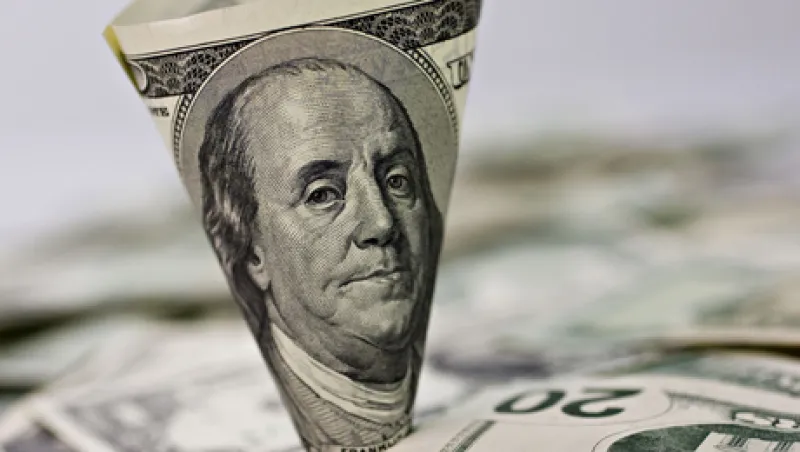One of the issues that have consistently come up in the Republican presidential debates is the value of the dollar and what the U.S. government should do about it. It is one of the few issues that unites right and left — should we punish China in order to bring manufacturing jobs back to the U.S.?
The latest to weigh in on the dollar topic is Dean Baker, an economist who is co-director of the left-leaning Center for Economic and Policy Research in Washington, D.C.
Baker argues in a new paper that the U.S. should unilaterally lower the value of the dollar by 10 percent against a basket of international currencies, mainly the Chinese renminbi and other Asian currencies. He maintains this would put U.S. trade in balance (the U.S. recorded a trade deficit of $47.8 billion in November, the last month for which statistics are available, up from $43.3 billion in October.)
“Right now we’re suffering from a serious shortfall of demand,” Baker said in an interview. “To make up that demand you either need a deficit on the government budget side or negative private savings. No one wants those right now.”
The last time the dollar moved significantly against other major currencies was in 1985, when the U.S. brought Britain, Germany, France and Japan together in a joint declaration known as the Plaza Accord. Baker doesn't rule out negotiations to lower the dollar’s value but suggests that new trading partners such as China may only bring down the dollar’s exchange rate if coercion is applied. Critics say that is the primary weakness of this argument.
Baker, though, argues that the U.S. government “actually has substantial power to determine the value of the dollar relative to other currencies.”
Among the measures he suggests as possible remedies, Baker says the U.S. could impose a tax on the interest earnings of holders of U.S. Treasuries such as China, which he says would not violate World Trade Organization rules.
Other steps he proposes include having the Federal Reserve intervene directly in currency futures markets to force down the value of the dollar and, alternatively, offer to buy foreign currencies at higher prices than they are currently getting on international markets.
Baker says this would lead to an increase in manufacturing output in the United States by 44 percent and the addition of more than 5 million manufacturing jobs.
Desmond Lachman, a resident fellow at the American Enterprise Institute, cautions that a unilateral move to weaken the U.S. dollar, which is the international reserve currency, could cause chaos in the financial system. The biggest problem is what is called beggar-thy-neighbor devaluations, in which Japan, for instance, responds to a U.S. effort by reducing the value of the yen. Such competitive devaluations helped caused the Great Depression.
“You can’t have a system where everybody tries to get a weak currency,” Lachman says. “You could have a real mess.”
Lachman says the real issue at the moment is that not only is the dollar not getting weaker against other countries’ currencies, but it is actually climbing significantly as investors flee the euro and buy U.S. Treasuries.
He warned against taking such dramatic actions as taxing Treasuries as a way of penalizing those countries such as China that have accumulated large U.S. dollar reserves. “My experience has been that going down the interventionist route — a tax here, a capital control there — generally what you find is unintended consequences,” Lachman says. “You might achieve one thing but it achieves all kinds of distortions elsewhere.”
There are also other issues with Baker’s argument. Although he maintains in his paper that the value of oil imports would decline by $62 billion if the dollar was revalued lower by 10 percent, there is substantial academic research which shows that oil prices rise as the dollar declines —meaning that the bill for imported oil would probably remain pretty much the same even with a devaluation.
Another issue is how much of an impact a change in currency value has on jobs and trade. Between 2005 and 2008, the Chinese renminbi appreciated from 8.6 to the dollar to 6.8 to the dollar, a 26 percent increase. Yet the U.S. trade deficit with China was $296 billion in 2008, up from $202 billion in 2006.
While a lower currency generally means more exports and lower imports, that is not always what happens. Perhaps a better method than a unilateral move by the U.S. would be a new Plaza Accord. Only now, China would have to be invited to the table to join France, Germany, Britain and Japan in setting a new dollar exchange rate.






